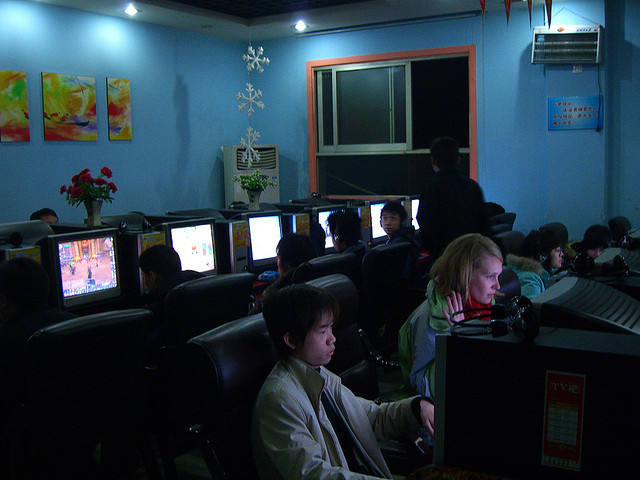A Guide to the Internet in China – Online Gaming Posted by sasha on Jun 6, 2014 in Culture
In case you didn’t catch our previous posts, we’ve already had an introduction to the Internet in China, a detailed post about censorship and the “Great Firewall,” and a guide to social media in China. No discussion of the ‘net in the Middle Kingdom would be complete without also diving into the realm of online gaming (游戏在线 – yóu xì zài xiàn), which is wildly popular in China.
Background
Until it was lifted earlier this year, China had previously had a 14-year ban on gaming consoles. Worried about violent content and the potential “moral decay,” companies like Sony, Microsoft, and Nintendo were all cut off from selling their consoles in China. Of course, you could still pick up a Playstation and a copy of Grand Theft Auto on the black market, but you couldn’t just walk into a legitimate store and legally buy them. Thanks to this ban on video game consoles, online gaming took off in China, especially amongst young men. With the opening of Internet bars (网吧 – wǎng bā) in the mid-90s, more and more people started packing in for marathon gaming sessions. Fast forward to modern times, and with the explosion of smart phones and tablets in China, you’ll see people deeply engaged in games everywhere you look.
Demographics
As we’ve mentioned in previous posts, China now has over 600 million people online. Many of them are seriously into online games, and it’s expected that by 2015 there will be at least 266 million gamers in China, spending at least two hours per month playing. Not surprisingly, a majority of them are city-dwelling men aged 18-30. With a seriously disproportionate population, it’s no surprise that a lot of single men have given up on the search for love and are perfectly content with living in a fantasy world online.
Most Popular Games
For those non-computer nerds out there, when talking about online games, there are two main types – MMORPGs and MOCGs. The former describes those games where users enter an online world composed of thousands of other users each playing their own characters – think World of Warcraft and other such titles. The latter refers to competitive games, such as chess, poker, or mahjong (麻将 – má jiàng) in China. Major online gaming companies in China include Tencent (same company that owns QQ and other social media giants), NetEase, Shanda, and The9. If you’re interested in learning about the Top 10 online games in China, check out this article. The #1 spot on the list goes to League of Legends (英雄联盟 – yīng xióng lián méng), a competitive MOBA (Multiplayer Online Battle Arena) game that’s popular all over the world. In general, Action RPG games are the most popular in China, followed by first-person shooting games.
Big Business
As the world’s largest online gaming market, it should come as no surprise that online games are big business in China. In 2013 alone, online game operators raked in 82.1 billion RMB ($13.5 billion), and that number is expected to grow to over $16 billion by the end of this year. For some insightful and cool infographics about the online gaming market in China, check this out. Of course, with such massive potential for profits, plenty of Western companies are trying to break into the Chinese market. Interestingly enough, this is also going the other way, as Chinese game developers begin to market their products to the West. One need look no further than the $400 million investment that Chinese gaming giant Tencent made in Riot Games, the developed of the aforementioned #1 game in the country.
A little old, but a good video from CCTV about online gaming in China.
Negative Social Impact
With so many young men hopelessly glued to their computer screens for hours at a time, there has of course been a negative social impact of online gaming in China. Internet addiction is rampant, and is a huge problem that the government is trying desperately to address. Stay tuned to the blog as we’ll discuss this new problem and how the authorities are dealing with it.

Build vocabulary, practice pronunciation, and more with Transparent Language Online. Available anytime, anywhere, on any device.
About the Author: sasha
Sasha is an English teacher, writer, photographer, and videographer from the great state of Michigan. Upon graduating from Michigan State University, he moved to China and spent 5+ years living, working, studying, and traveling there. He also studied Indonesian Language & Culture in Bali for a year. He and his wife run the travel blog Grateful Gypsies, and they're currently trying the digital nomad lifestyle across Latin America.






Leave a comment: